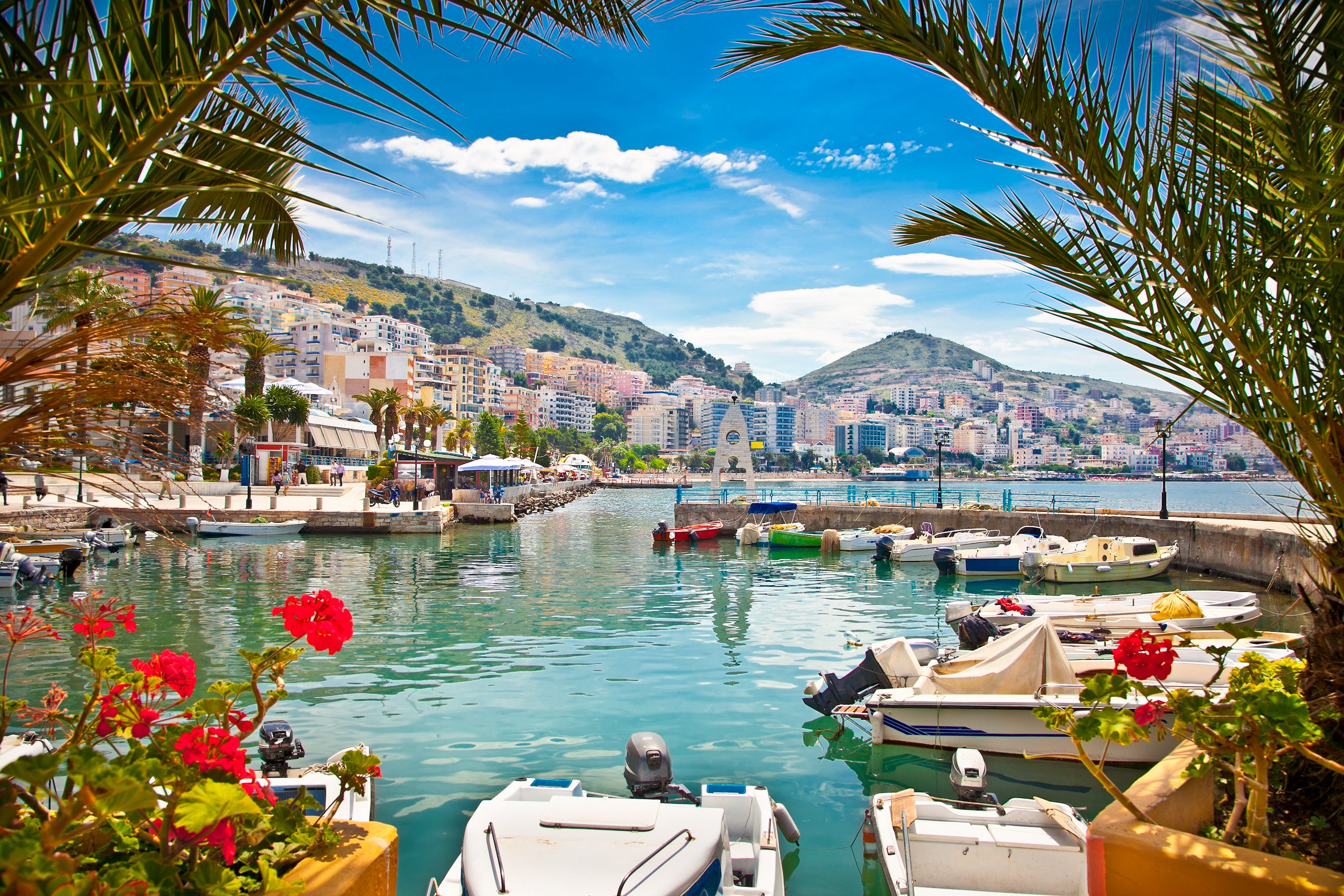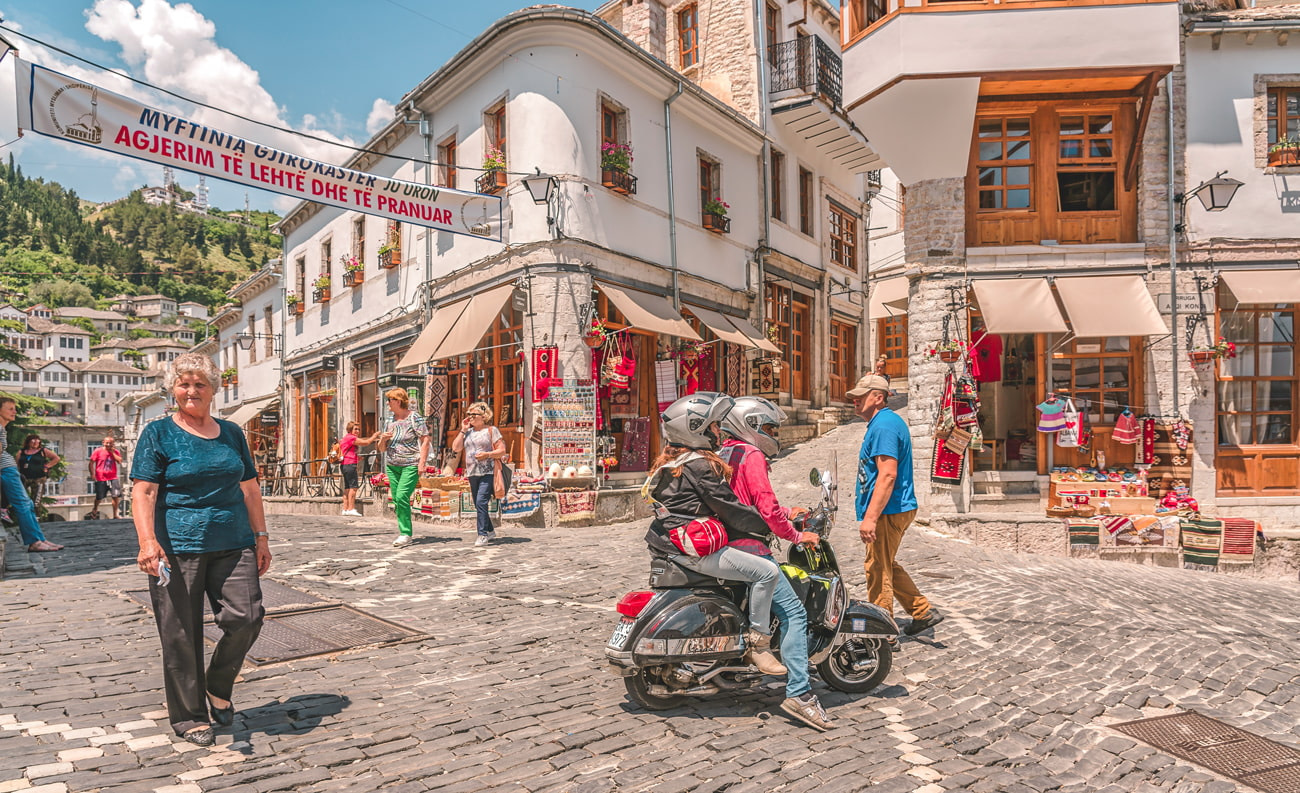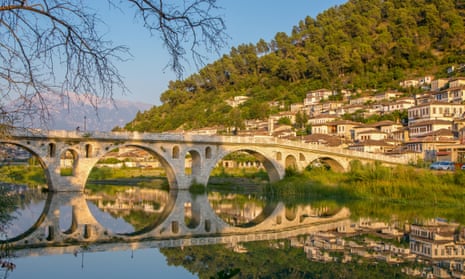Albania: A Land of Rich History, Stunning Landscapes, and Cultural Resilience
 Nestled in the heart of the Balkan Peninsula, Albania is a country with a rich tapestry of history, culture, and natural beauty. Despite its relatively small size, Albania boasts a diverse landscape that encompasses rugged mountains, pristine beaches, and picturesque valleys. But beyond its breathtaking scenery, Albania is a land with a complex past, shaped by centuries of conquest, migration, and cultural exchange. In this comprehensive exploration, we delve into the multifaceted story of Albania, from its ancient origins to its modern-day resurgence on the global stage.
Nestled in the heart of the Balkan Peninsula, Albania is a country with a rich tapestry of history, culture, and natural beauty. Despite its relatively small size, Albania boasts a diverse landscape that encompasses rugged mountains, pristine beaches, and picturesque valleys. But beyond its breathtaking scenery, Albania is a land with a complex past, shaped by centuries of conquest, migration, and cultural exchange. In this comprehensive exploration, we delve into the multifaceted story of Albania, from its ancient origins to its modern-day resurgence on the global stage.
Ancient Roots and Classical Legacy
The history of Albania stretches back millennia, with evidence of human habitation dating back to the Neolithic era. The region's strategic location at the crossroads of Europe and the Mediterranean made it a coveted prize for ancient empires seeking to expand their influence.
In antiquity, Albania was inhabited by Illyrian tribes, fierce warriors known for their independence and resilience. The Illyrians left behind a legacy of fortified settlements, intricate artwork, and enigmatic burial sites, providing glimpses into their rich cultural heritage.
During the classical period, Albania became part of the Roman Empire, with its territory comprising the province of Illyricum. Roman rule brought with it the spread of Latin culture and the development of urban centers, such as Dyrrachium (modern-day Durrës) and Apollonia, which flourished as hubs of trade, commerce, and intellectual exchange.
Byzantine and Ottoman Rule/cloudfront-ap-southeast-2.images.arcpublishing.com/nzme/4EQLTF7CXJCIJKJ6B3QDKKJMAY.JPG)
Following the decline of the Roman Empire, Albania came under Byzantine rule, becoming a frontier region on the eastern edge of the Byzantine Empire. Despite periods of stability and prosperity, Albania was frequently subject to invasions and incursions by neighboring powers, including the Bulgarians, Serbs, and Normans.
In the late Middle Ages, Albania fell under the dominion of the Ottoman Empire, marking the beginning of a new chapter in its history. Over the centuries, Albania's cultural landscape underwent profound changes, as Islamic influence gradually supplanted Christianity as the dominant religious tradition.
Despite Ottoman rule bringing significant cultural and economic development to Albania, it also engendered resistance and rebellion among the Albanian populace. Figures such as Skanderbeg, the legendary Albanian nobleman who led a spirited resistance against Ottoman rule in the 15th century, became symbols of national pride and defiance.
Independence and Nation-Building
The 19th century saw a resurgence of nationalist sentiment in Albania, fueled by a desire for self-determination and independence. The decline of the Ottoman Empire provided an opportunity for Albanian nationalists to assert their aspirations for statehood and sovereignty.
In 1912, Albania declared its independence from Ottoman rule, ushering in a new era of nation-building and political upheaval. However, Albania's newfound independence was short-lived, as it soon became embroiled in regional conflicts and power struggles.
Communist Rule and Isolation
Following World War II, Albania came under the control of the communist regime led by Enver Hoxha, a charismatic leader who ruled the country with an iron fist for over four decades. Hoxha's regime implemented a harsh program of centralization, collectivization, and isolationism, transforming Albania into one of the most closed and repressive societies in the world.
During this period of communist rule, Albania underwent rapid industrialization and modernization, albeit at great cost to individual freedoms and human rights. The regime's policy of self-reliance and isolation from the outside world led to economic stagnation and social deprivation, leaving many Albanians disillusioned and disenchanted with their government.
Transition to Democracy and European Integration
The collapse of communism in Eastern Europe in the late 20th century heralded a new era of change and transformation for Albania. In 1991, Albania held its first multiparty elections, marking the beginning of a transition to democracy and a market economy.
Since then, Albania has made significant strides towards political stability, economic development, and European integration. The country has implemented reforms aimed at strengthening democratic institutions, promoting respect for human rights, and combating corruption.
Albania's efforts to forge closer ties with the European Union (EU) have also borne fruit, with the country being granted candidate status for EU membership in 2014. While challenges remain, including the need for further reforms and economic modernization, Albania's aspirations for European integration signal a hopeful and optimistic future for the country and its people.
Cultural Heritage and Natural Beauty
Beyond its tumultuous history and political transformations, Albania is also renowned for its rich cultural heritage and stunning natural beauty. The country boasts a wealth of archaeological sites, including ancient cities, fortresses, and religious monuments, attesting to its vibrant and diverse past.
Albania's diverse landscape offers a myriad of opportunities for outdoor enthusiasts, from hiking in the rugged mountains of the Albanian Alps to sunbathing on the pristine beaches of the Albanian Riviera. The country's national parks, such as Theth National Park and Butrint National Park, provide havens for wildlife and ecosystems of unparalleled biodiversity.
Conclusion
Albania's journey from ancient Illyrian tribes to modern-day European aspirant is a testament to the resilience, determination, and spirit of its people. Despite facing numerous challenges and setbacks throughout its history, Albania has emerged as a nation with a vibrant cultural identity, a dynamic economy, and a hopeful vision for the future.
As Albania continues on its path of democratic consolidation, economic development, and European integration, it stands poised to reclaim its rightful place on the global stage. With its rich history, stunning landscapes, and cultural resilience, Albania invites visitors and observers alike to discover the beauty and complexity of this fascinating country at the crossroads of Europe and the Mediterranean.








































![[LIVE] Engage2Earn: auspol follower rush](https://cdn.bulbapp.io/frontend/images/c1a761de-5ce9-4e9b-b5b3-dc009e60bfa8/1)


















